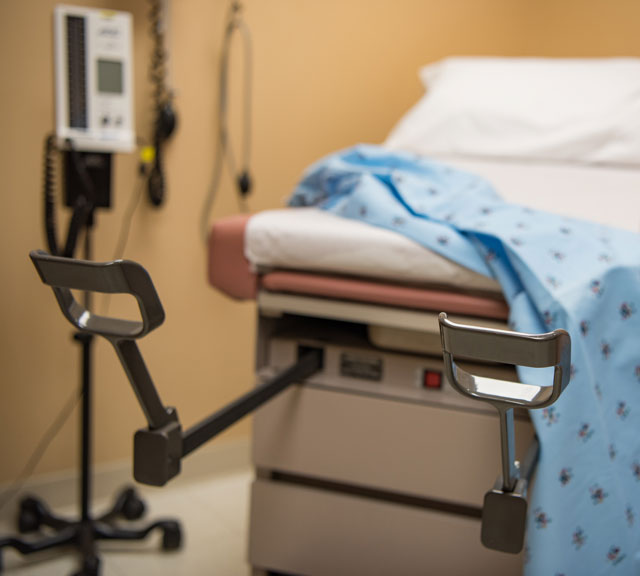Tests That Confirm or Deny Ovarian Cancer

Find Your Perfect Match
Answer a few questions and we'll provide you with a list of primary care providers that best fit your needs.
Does your doctor want to run some tests for ovarian cancer? Take a deep breath and keep reading. Here’s what you can expect. It will help to know before the testing begins.
1. Lots of questions: If she hasn’t already, your doctor will ask you plenty of questions about your symptoms, family history and menstrual cycle, for starters. She’ll also do the usual physical exam.
2. Pelvic exam: You know the routine. She’ll feel your torso for any unusual lumps. And she’ll have you lie on your back, feet in stirrups, so she can feel inside your vagina. She may also do the same in your rectum to feel for anything unusual.
3. Imaging tests: Before your doctor can properly diagnose you, you’ll likely have one or more of these imaging tests. Each of them is typically conducted by a technician (so you shouldn’t expect to see your doctor during your test). When available, the results will be provided to your doctor. Ask the technician how long it will take your doctor to get the results.
- Ultrasound: A small probe is placed in your vagina, or on top of your abdomen. It makes a video of your insides on a computer screen and lets your doctor look for cysts or tumors. It’s uncomfortable, but not painful.
- CT scan: You’ll be asked to swallow a liquid dye, or it will be injected into your vein to help your organs show up more clearly during this test. During the test you’ll lie still on a bed while a computer takes a series of detailed X-ray images of your body. The computer might rotate around you to get images at various angles. You shouldn’t feel a thing. It may take up to 90 minutes for the liquid dye to reach the appropriate tissues, so you may want to bring music or a book to pass the time.
- PET scan: This is often combined with a CT scan, so both tests are done at the same time. Together they provide your doctor more information. You’ll lie on a table and be injected with a small amount of a radioactive substance. If you have cancer cells in your body, those cells will absorb the substance, allowing your doctor to see if and where you have cancer. You shouldn’t feel any discomfort during this test, but you will need to be still.
- MRI: This test uses a magnet, radio waves and a computer to take very detailed photos of the inside of your body. In some instances you may be asked to avoid eating two hours prior to your MRI. With a typical MRI you’re given a liquid dye to swallow — or it may be injected — that will help your doctor get a clearer picture of your insides. For the actual test you’ll be asked to lie still on a table, which will slide partially into a large tube-like structure. The test may take up to 90 minutes but there will be short breaks where you can speak to the technician if you are uncomfortable or have concerns.
- Chest X-ray: This test will show if you have cancerous tumors in your lungs. Much like a mammogram, you’ll be asked to undress from the waist up and you will stand during the test. It only takes a few minutes to complete.
Before your doctor can properly diagnose you, you’ll likely have one or more of these imaging tests.
4. Colonoscopy: You may have already had a colonoscopy. It’s done routinely to screen for colon cancer. The night before the procedure, you’ll take large amounts of laxatives to clear your colon and rectum, and you’ll need to refrain from eating. During the test you’ll be given an IV to relax you (or cause you to sleep) while the doctor uses a scope to check your colon and rectum for any abnormalities.

5. Laparoscopy: Your doctor makes a tiny incision below your abdomen, then puts a thin, lighted tube inside to look at your ovaries and other organs in your pelvic area. She can take small tissue samples (called biopsies) at the same time. A tissue sample examined in a lab is the only way to confirm you have ovarian cancer, and if so, what stage.
6. CA-125 blood test: This test indicates how much of a protein called CA-125 is in your blood. If you definitely have ovarian cancer, the blood test can tell your doctor if you are responding to treatment.
Find Your Perfect Match
Answer a few questions and we'll provide you with a list of primary care providers that best fit your needs.
Source: American Cancer Society; National Cancer Institute




